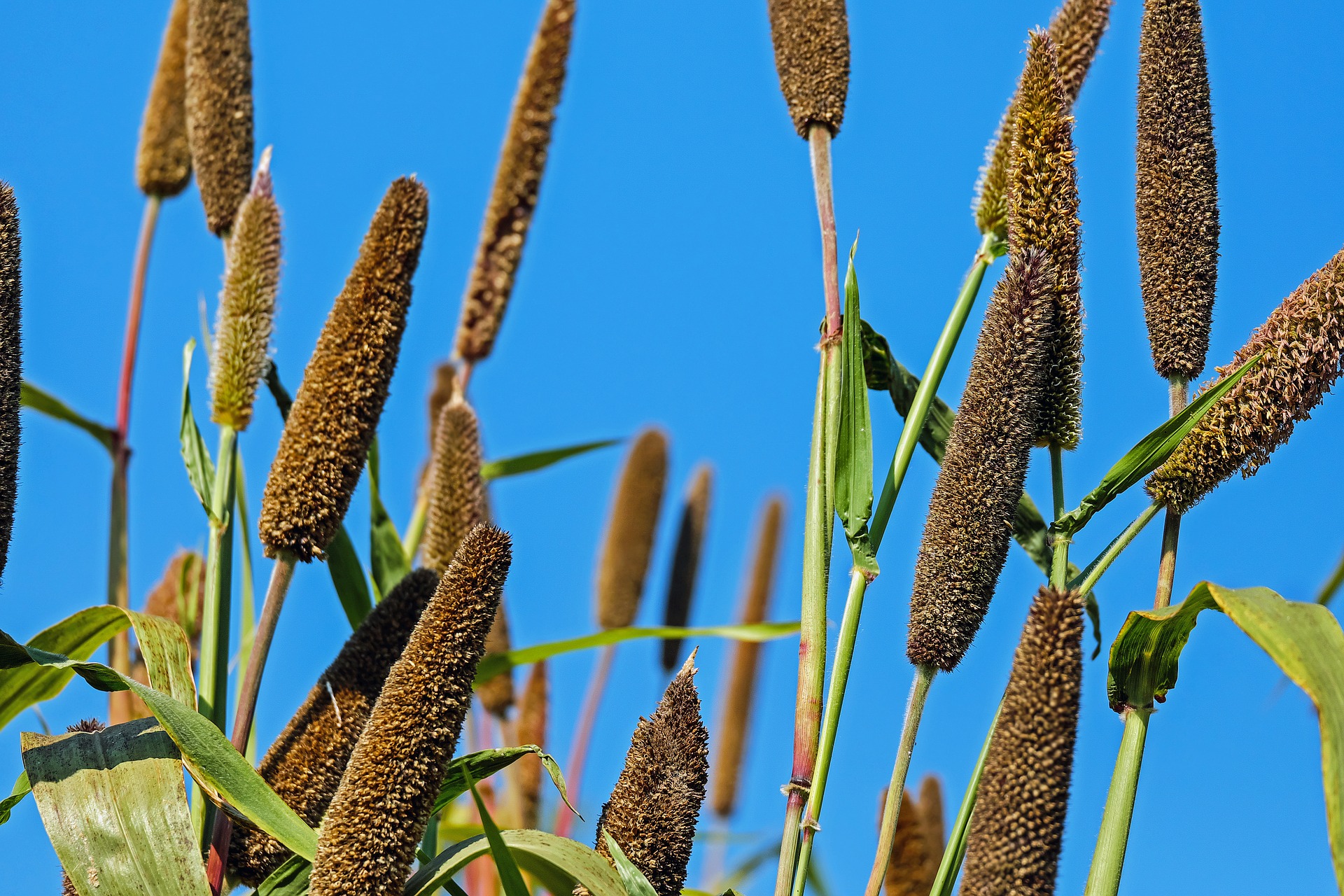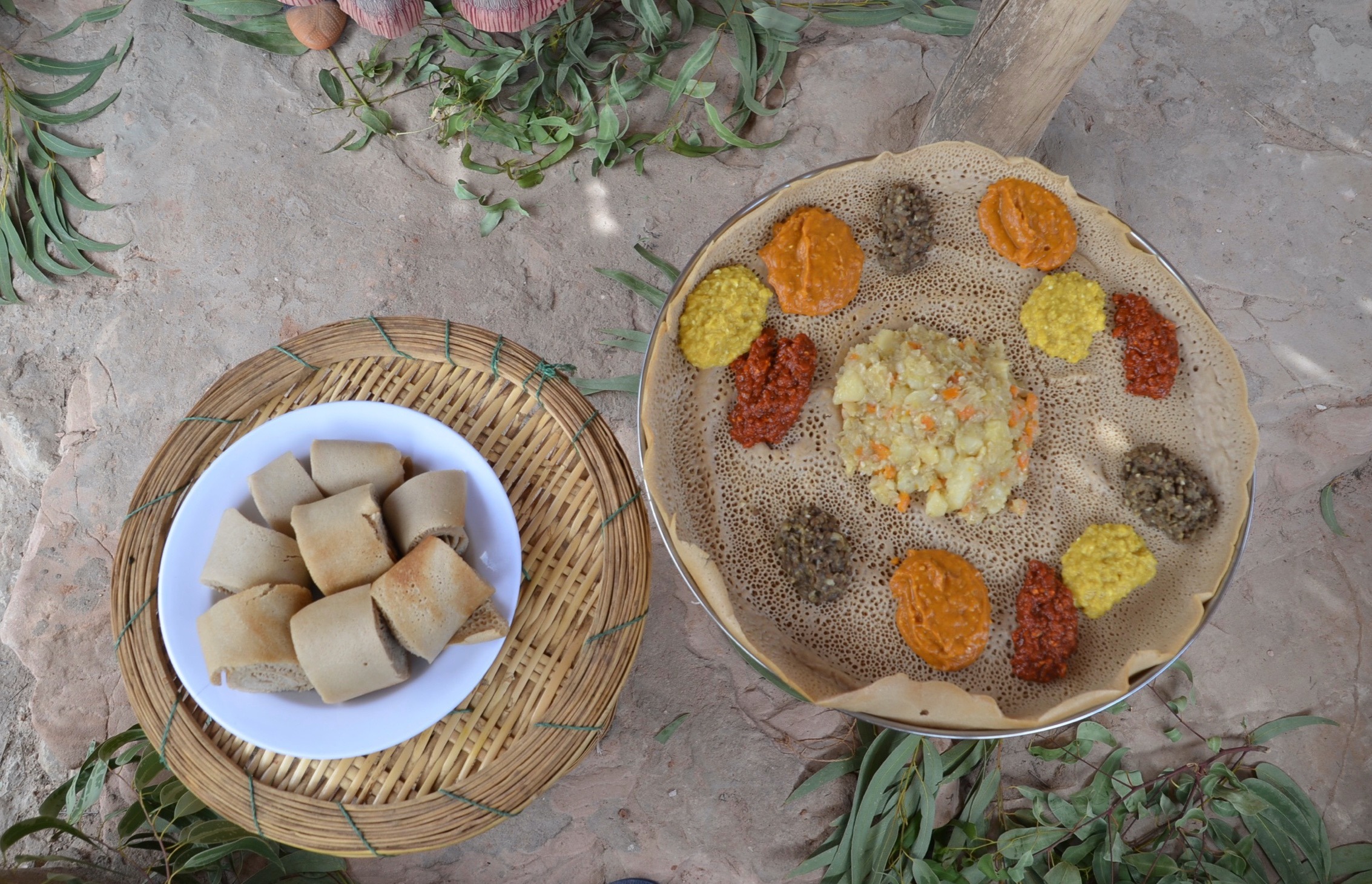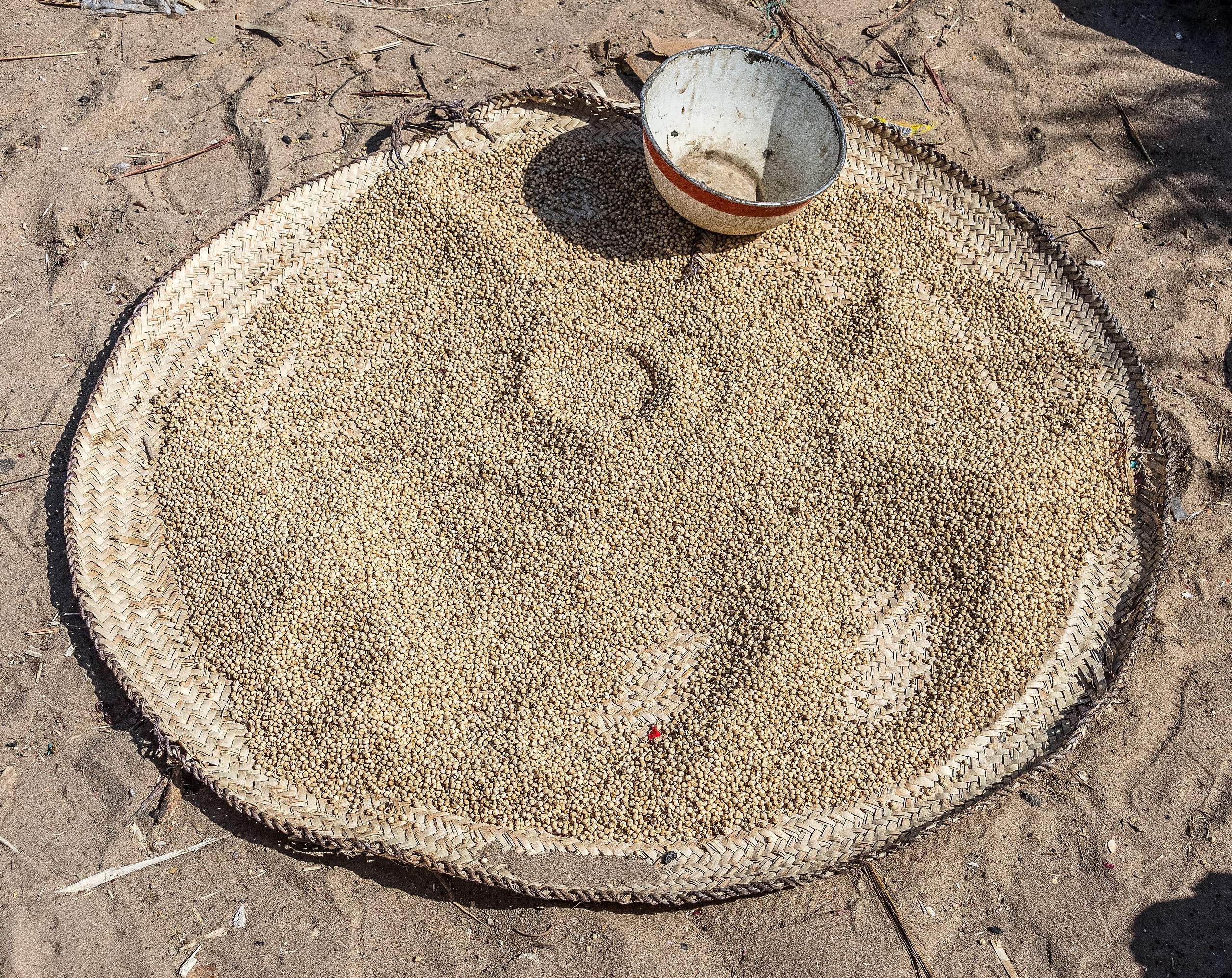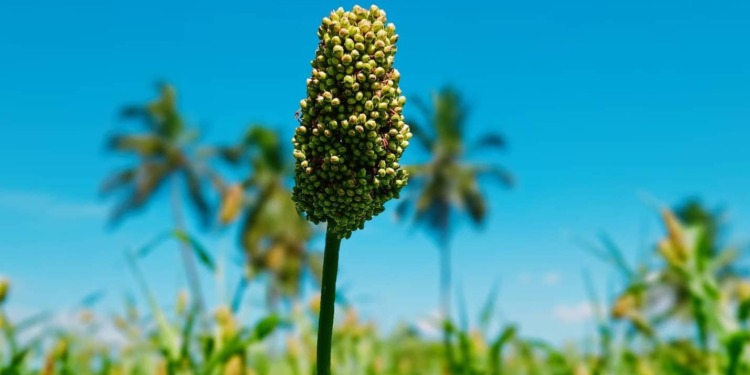In March 2021, the United Nations General Assembly declared 2023 the International Year of Millets (IYM 2023).
Almost a year before Russia’s invasion of Ukraine, the UN couldn’t have known at the time exactly how relevant this choice would become in 2023. As the war continues to cause problems for grain supplies worldwide, what better time is there to raise awareness about this eco-friendly, climate resilient, and nutritious alternative?
What Are Millets?
Millets are a highly varied group of small-seeded grasses that are grown widely around the world. Types of millets include the well-known grains teff, sorghum (or great millet), and pearl millets, as well as the lesser-known proso, foxtail, barnyard, little, kodo, browntop, finger, Guinea, and fonio varieties.

Millets are an ancient grain, consumed by humans up to 7,000 years ago. Evidence shows that they played a pivotal role in the rise of multi-crop agriculture and settled farming societies, which were the very foundation of human civilisation.
Currently, approximately 97% of millets worldwide are produced in developing countries, and they are still a staple crop in semiarid regions of Asia and Africa, such as India, Nigeria and the Niger. Because they can grow on arid lands and are resilient to droughts, among other changes in climate, they are considered a hardy and dependable crop.

Not only are millets an unchallenging crop, but they are actually good for the areas where they grow. Millets can grow in both very poor and fertile soils and do not heavily deplete soil nutrients. By providing land cover in arid areas, they also help to reduce soil degradation and support biodiversity and sustainable land restoration.
As a food, they are a good source of minerals, dietary fibre, antioxidants and protein, and their low glycemic index makes them a good option for people with high-blood sugar. All varieties of millets are also gluten-free and a cost-effective source of iron.
These qualities make millets an ideal solution for countries to increase self-sufficiency and reduce reliance on imported cereal grains.
The UN Food & Agriculture Organisation and World Hunger
The Food & Agriculture Organisation of the United Nations (FAO) is a specialised agency of the United Nations whose aim is to eradicate world hunger and ensure that people everywhere have regular access to enough high-quality food.
The organisation released a report in 2022 detailing the state of food security worldwide, which showed that rates of food insecurity worldwide had grown since the beginning of 2020. This decline in food security was attributed to three causes:
- Disruptions caused by the COVID-19 pandemic including bottlenecks in supply chains and soaring transportation costs
- The war in Ukraine, which, by involving two of the biggest producers in agriculture and staple cereals globally, is disrupting both supply chains and food costs
- The growing frequency and intensity of extreme climate events, which are also proving to be a major disrupter of supply chains, especially in low-income countries
All of these factors have led to shortages, which have fuelled even higher food price inflation and worsened the state of food security for the populations who were already struggling the most to feed their families.
Every year, the UN General Assembly announces an “International Year,” which is mainly observed and celebrated by FAO, alongside other relevant organisations and bodies of the United Nations system.
Related Articles:World Facing Unprecedented Hunger Crisis: “Famine Around the Corner” in Horn of Africa | Extreme Hunger Rises by 123% in Worst-Affected Climate Hotspots | War and Hunger: A Ukraine-born Artist’s View | What’s Going on With Ukraine’s Grain Exports?
These celebrations are held in order to raise awareness and direct policy attention towards different facets of worldwide nutrition and global food systems, action that works in tandem with promoting a variety of Sustainable Development Goals (SDGs) especially SDG 2. Zero Hunger.
In 2022, FAO celebrated the International Year of Artisanal Fisheries and Aquaculture (IYAFA).
Recognizing the vital role of women in small-scale #ArtisanalFisheriesAquaculture is key because:
⚖️ fishers, fish workers & fish farmers are equals, no matter their gender
♀️ it is essential to women's empowerment
🌍 we cannot achieve the #SDGs without women#IYAFA2022 pic.twitter.com/lZaqICYNEo
— Food and Agriculture Organization (@FAO) December 29, 2022
FAO described their vision statement for IYAFA as:
“A world in which small-scale artisanal fishers, fishfarmers and fish workers are fully recognized and empowered to continue their contributions to human well-being, healthy food systems and poverty eradication through the responsible and sustainable use of fisheries and aquaculture resources.”
In pursuit of this aim, FAO held multiple events over the course of the year, one of which allowed fishers and fish workers from Cabo Verde, Côte d’Ivoire, Ecuador, Indonesia, Peru and Senegal to gather in the Tumbes National Mangrove Sanctuary in Peru “to exchange knowledge and best practices to foster economic, environmental and social sustainability as well as gender equality in artisanal small-scale fisheries.”
Find a list of all the IYAFA events held here.
What’s on the Agenda for the International Year of Millets 2023?
The initiative for the UN to adopt the International Year of Millets for 2023 originated in Karnataka, a state in southwest India, where locals organised to gain international recognition for these nutrient-rich crops.
India then successfully presented the proposal for the International Year and is now the chair of the Year’s Steering Committee.
Agricultural economist and former chairman of Karnataka Agricultural Prices Commission, T.N. Prakash Kammaradi, observed that millets have three different dimensions of climate, nutrition, and cultural quotient:
“This is because they are climate-resilient and suit dryland farming. Similarly, they have high nutritional value. They are also related to culture since they are an integral part of food habits.”
The ultimate goal for IYM 2023 is to shed a global spotlight on the nutritional and health benefits of millets and their adaptability to adverse and changing climatic conditions.
The Year also hopes to promote the sustainable production of millets and highlight their potential to provide new sustainable market opportunities for both producers and consumers.

At the opening ceremony of the International Year of Millets 2023 on December 6 in Rome, FAO Director-General QU Dongyu told participants:
“Millets are incredible ancestral crops with high nutritional value. Millets can play an important role and contribute to our collective efforts to empower smallholder farmers, achieve sustainable development, eliminate hunger, adapt to climate change, promote biodiversity, and transform agrifood systems.”
According to FAO, IYM 2023 will also contribute to the 2030 Agenda for Sustainable Development and a wide swathe of SDGs including SDG 2. Zero Hunger, SDG 3. Good Health and Well-Being, SDG 8. Decent Work and Economic Growth, SDG 12. Responsible Consumption and Production, SDG 13. Climate Action and SDG 17. Partnerships for the Goals.
In the communication handbook for IYM 2023, FAO lists specific calls to actions for different societal players.
Chefs and influencers are asked to use millets in recipes and menus. Governments and policy makers are asked to put millets on the menu in public places such as schools and hospitals.
The private sector is asked to invest in the sustainable production of millets by facilitating access to credit or other financial support, and farmers are asked to learn about the most up-to-date methodologies for cultivating, harvesting and post-harvesting to ensure the highest quality.
With only seven years remaining to end hunger, food insecurity and all forms of malnutrition by 2030, this year is simply an opportunity to put this nutritious cereal in the spotlight.
If you’re an enthusiast of this healthy, culturally important, and climate responsible cereal, then you’ll have plenty on your plate this year. If you want to partake in a more low-key way from home, you can simply toss out your cornflakes and try out a few millet-based recipes instead.
Although modern technology is constantly developing new hybridised form of wheats in order to increase yield and combat the threat of global grain shortages, sometimes solutions are found more easily in the past than in the future, and millets have been providing affordable and reliable sustenance to humans for millennia.
Editor’s Note: The opinions expressed here by the authors are their own, not those of Impakter.com — In the Featured Photo: A sorghum plant, which is a type of millet. Featured Photo Credit: Wikimedia.










